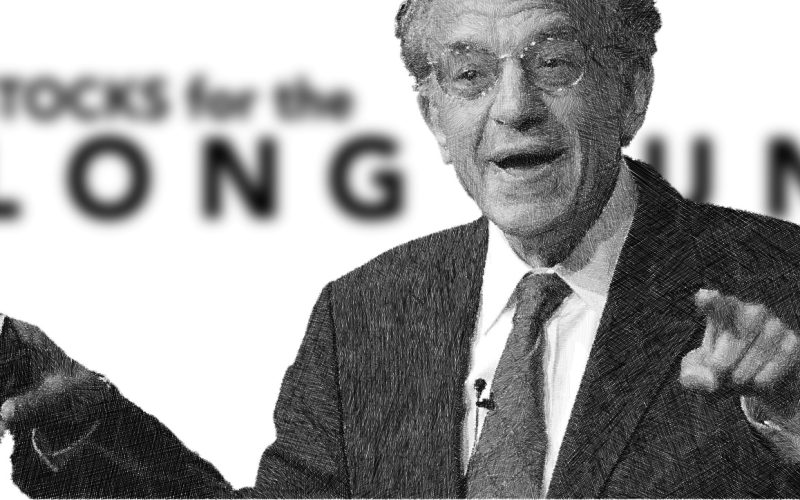by Professor Jeremy J. Siegel, Senior Economist to WisdomTree and Emeritus Professor of Finance at The Wharton School of the University of Pennsylvania
Despite continued economic resilience, the political storm brewing between President Trump and Federal Reserve Chair Powell has taken center stage. Last Friday, I raised what may be a controversial proposition: I believe it is the best long-term interest of the Federal Reserve—and Powell himself—if he were to resign now rather than serve out his remaining ten months. This isn't a call to bow to political pressure. It’s a call for strategic thinking grounded in scenario analysis and institutional preservation.
The Fed’s independence has long been one of the cornerstones of a well-functioning U.S. economy. But in today’s politically charged environment, that very independence could face a greater threat if Powell remains in place and the economy falters in the second half of the year. While I remain optimistic that the economy will hold up, there is undeniable risk. If growth slows and Powell hasn't moved aggressively enough on rate cuts, Powell will become the scapegoat. In that case, a Republican-led Congress, already skeptical of the central bank, could impose serious structural restrictions, including changes to the Fed’s governing mandate or the president’s power to remove the Chair. We must remember: the Fed is a creature of Congress. It has no constitutional status, and its rules can be rewritten.
On the other hand, should the economy perform well through the next 10 months, Powell would receive no credit. Trump and his allies would attribute any strength to the ‘One Big Beautiful Bill’, tax reform, deregulation and not to monetary stewardship. So, Powell faces an asymmetric risk: basically no upside, with all the downside.
Powell’s term ends in less than a year, and functionally, he could be effectively sidelined even sooner as a replacement is nominated. The markets are already absorbing this reality—there was a brief market dip on rumors of Powell’s early departure, but no major disruption.
Importantly, the leading candidates to replace Powell—Kevin Warsh and Kevin Hassett—are serious, qualified economists. Warsh, in particular, has impressed me with his nuanced view on the Fed’s past mistakes, including its delayed response to the fiscal and monetary stimulus of 2020-21. He also recognizes the transformative, deflationary power of AI—something the Fed’s models have largely ignored.
Warsh’s criticism of the Fed’s rigid thinking echoes many of my long-standing concerns. He sees the need for a new regime that better integrates rapid economic innovation, and he's right to question the outdated assumptions embedded in current growth forecasts. His historical awareness, including strong praise for Ben Bernanke’s leadership during the financial crisis, signals that we’re not dealing with a partisan ideologue, but rather a pragmatic economist who understands monetary dynamics.
Kevin Hassett should also be recognized as a strong and thoughtful candidate. I’ve worked closely with him in the past and can vouch for his grasp of macroeconomic policy and appreciation for the Fed’s role in preserving financial stability. Though more focused historically on fiscal issues, Hassett understands the monetary transmission mechanism and has long championed pro-growth policies rooted in sound economic theory. While I disagreed with his stance on certain trade policies—particularly the “reciprocal tariff” formulation—he is no ideologue. His analytical rigor and respect for the Fed would make him a competent and credible Fed Chair.
By stepping down voluntarily, Powell could preserve the Fed’s credibility, disarm political hostility, and force Trump to fully “own” the economic outcome, whether good or bad. If the economy weakens, it will be Trump’s Fed Chair in place—there’s no one else to blame. If the economy holds steady or improves, little would change in terms of perception, and the Fed’s independence would remain intact.
Some will argue that resignation under political pressure would undermine the central bank’s autonomy. I believe the opposite. A graceful, voluntary exit now could shield the institution from greater political intervention later. This is not a decision based on principle alone, but on expected value—the probabilities and outcomes suggest resignation strengthens the Fed’s position over time.
I am urging that we consider the full range of scenarios, and Powell’s continued presence at the Fed poses more downside risk than upside benefit. Sometimes, the most counterintuitive moves are the most strategic. We must think in terms of chess, not checkers here.
Copyright © WisdomTree













